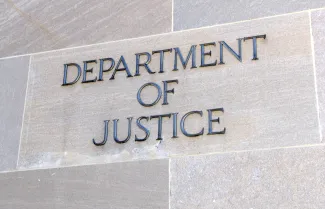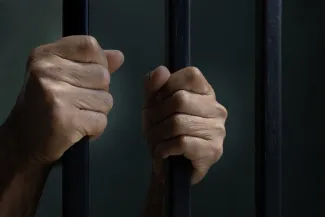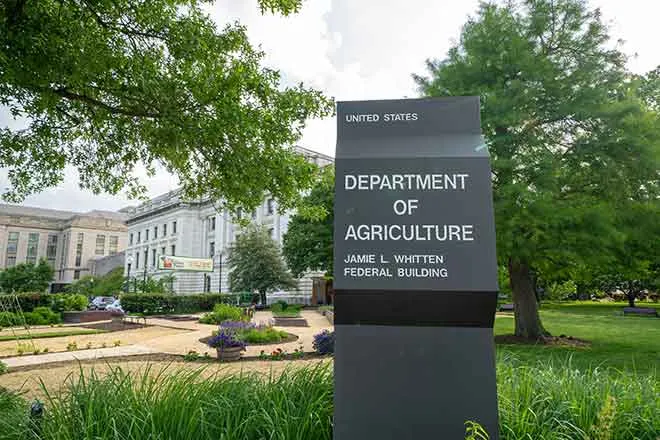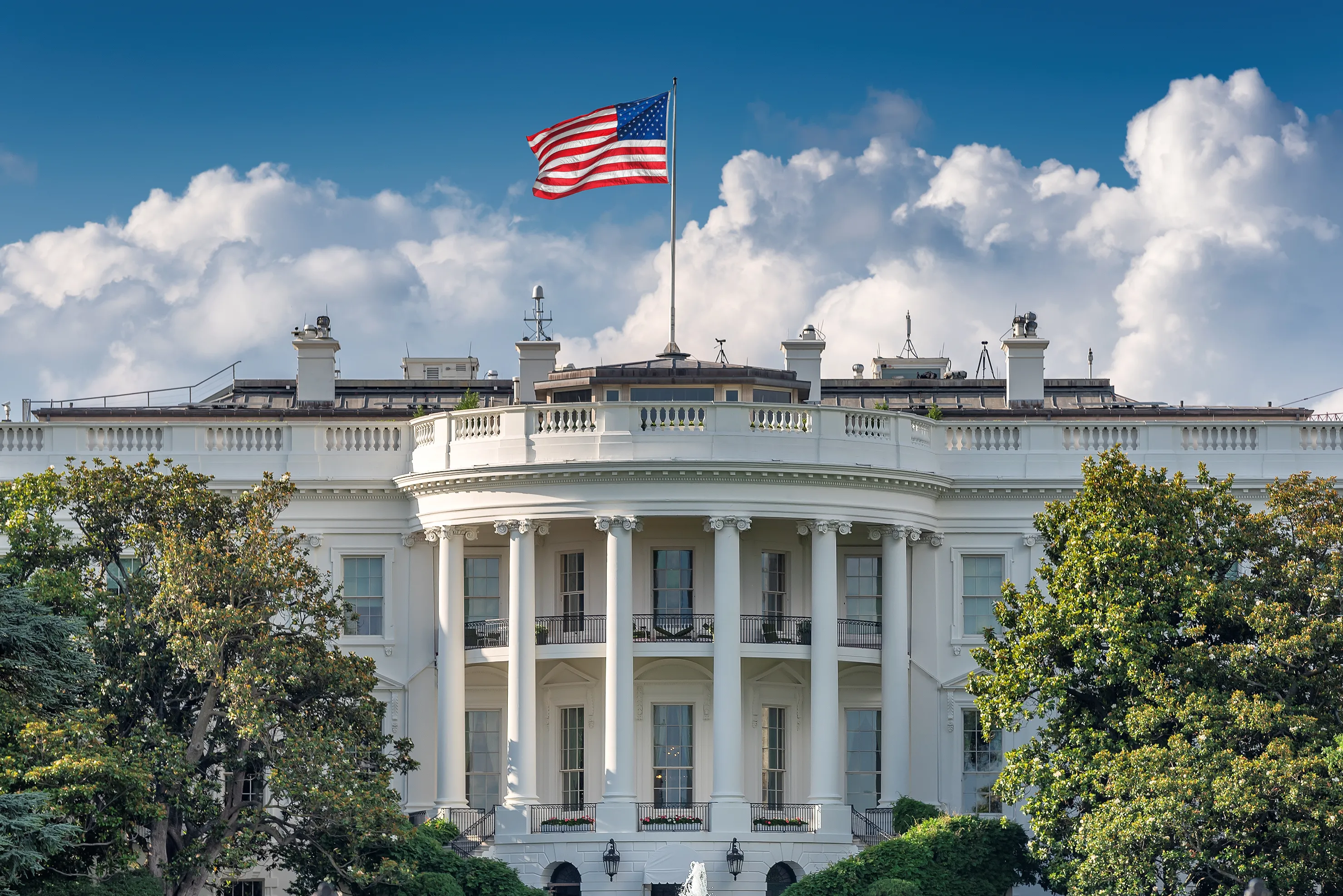
Democratic AGs sue DOJ to receive federal funding for victims of violent crimes
Violent crime victims and their families across the country stand to lose more than $1 billion in direct compensation and support services under federal directives that illegally condition state grants on compliance with unrelated immigration policies.
So argued 21 Democratic state attorneys general, including Rhode Island’s Peter Neronha, in a new lawsuitfiled in Rhode Island federal court on Monday. The complaint seeks to stop the U.S. Department of Justice (DOJ) and U.S. Attorney General Pam Bondi from withholding statutory federal funds under the Victims of Crime Act (VOCA) to states whose officials refuse to comply with federal civil immigration enforcement.

Rhode Island is among more than dozen states facing threats from the Trump administration for alleged “sanctuary” policies. Bondi in an Aug. 13 letter to Governor Dan McKee demanded the state get rid of its policies that “thwart federal immigration enforcement, warning of criminal charges and yanking federal funding if state officials refuse to comply.
McKee and Neronha have previously rebuffed the “sanctuary” label, pointing to a 2014 federal judge’s ruling as the determinant of state immigration policies.
“This case isn’t about a lack of cooperation with the federal government when it comes to law enforcement,” Neronha said in a virtual press conference on Monday. Instead, he argued that the federal administration’s “trumped up” request for states to carry out civil immigration policies — finding and detaining undocumented immigrants who have not committed crimes — was beyond the scope of what local public safety agencies can, or should, do.
Attorneys General Matthew Platkin of New Jersey, Kathy Jennings of Delaware, Rob Bonta of California, and Kwame Raoul of Illinois, also participated in the Zoom call with reporters Monday as co-lead plaintiffs on the case.
“We need our state police and our local police investigating violent and other crime,” Neronha said. “That’s their job, that’s what they are trained to do, that’s what we need them to do.”
Victims compensated
But that logic has not swayed the federal administration, which is threatening to pull funding for victims of gun violence, sexual assault, armed robberies and other violent crimes to pay for lawyers, shelter, funeral and burial services and counseling and other recovery supports. For federal fiscal year 2024, Rhode Island received nearly $3.3 million in federal VOCA funds helping nearly 42,000 violent crime victims and their families with direct compensation and support services through partner nonprofits.
It’s the first time in the federal law’s 41-year history that Rhode Island and other states might not get the congressionally appropriated money, based on a population-driven formula.
Bondi put states on notice in February, warning broadly about cuts to federal funding for states that failed to comply with federal immigration policies.

The threat solidified last month, when the DOJ’s Office for Victims of Crime issued its annual notice alerting states of the window to apply for formula-driven and competitive grants to help violent crime victims. The July 21 memo explicitly stated that states that obstruct or don’t help federal immigration agents find, arrest and detain undocumented immigrants will not receive funding.
If the DOJ follows through on this threat, it would cut off nearly $1.4 billion to states in federal fiscal 2025, in turn hurting victims of crimes, and their families, according to the AGs lawsuit.
“In short, lapses in grant funding, even if temporary, would result in the sudden and massive disruption of state victim services programs that have historically been supported by USDOJ grant funds,” the complaint states. “Among other things, this could result in unsafe conditions for victims and their families. Furthermore, this loss in VOCA funding and curtailment of victim support services would likely impact victims’ willingness to cooperate with law enforcement and adversely impact law enforcement efforts throughout the State.”
The legal arguments echo the 32 federal lawsuits Neronha’s office has led or joined since Trump took office, focused on Constitutional violations of separation of powers and spending. Despite the flurry of legal challenges Democratic attorneys general have not lost vigor and passion — touting their wins during the press conference in securing preliminary and long-term blocks to federal actions on everything from research grants to education funding.
The complaint also references a separate lawsuit filed by 17 state-level coalitions that help domestic violence and sexual assault survivors. Earlier this month, Rhode Island Senior District Judge William. E. Smith temporarily blocked the federal government from withholding Violence Against Women Act (VAWA) grants based on directives around gender ideology and diversity initiatives. The 1994 federal law offers formula-driven funds for sexual assault and domestic violence victims, two subgroups of violent crime victims helped by the Victims of Crime Act, which preceded it by a decade.
The latter also addresses victims and families of gun violence, elder abuse, stalking and harassment and childhood abuse and neglect, among other types of violent crimes. Since 2011, the federal fund has also paid nearly $15 billion to more than 65,600 claimants who were hurt, became sick or died from the Sept. 11 attacks.
‘The most heinous acts’
“This administration is holding hostage over $1 billion directly to support some of the most heinous acts anyone will ever do,” Platkin of New Jersey said during the virtual press conference. Platkin later declared the Trump administration “the most anti-public safety administration” in modern history.
Neronha echoed Platkin’s outrage.
“This Administration is hanging Americans out to dry; in this case American victims who are attempting to pick up the pieces of their lives, bury their family members, and see to it that criminals responsible for hurting them and their loved ones are held accountable,” Neronha said. “In this country, above all else, we expect our government to protect us, and this latest move flies in the face of that expectation.”

© Akarawut Lohacharoenvanich - iStock-1436012592
The lawsuit asks a federal judge to force the DOJ to remove the strings attached to its federal crime victim funding, and permanently prevent the federal administration from imposing any conditions later.
The clock is ticking, with an Aug. 20 deadline for states to submit their final applications for federal grants. Awards are expected to be announced by Sept. 30.
“If USDOJ refuses to award funds to Plaintiff States that do not comply with the Immigration Enforcement Conditions, the window for Plaintiffs to have secured FY 2025 VOCA funding will have passed,” the complaint states. “As a result, even if Plaintiffs ultimately prevail in having the Conditions vacated and declared unlawful, critical programs for victims and survivors that have long been supported by USDOJ grants will be irreparably disrupted.
In addition to formula-driven awards, states can also seek additional, competitive grants. Rhode Island, for example, intends to apply for a technology grant to enhance its VOICE (Victims Outreach Integrated Community Environment) online portal, which streamlines information about court cases, offenders and other information necessary for crime victims, their advocates, and state agencies, according to the complaint. Neronha’s office began developing the portal in fiscal year 2020, though the rollout was delayed to fiscal 2022because of the pandemic.
Natalie Baldassarre, a spokesperson for the Justice Department, declined to comment. The lawsuit also names Maureen Henneberg, acting assistant attorney general for the U.S. Office of Justice programs, and Katherine Darke Schmitt, acting director of the Office for Victims of Crime, as defendants.
Other state AGs that joined represent Colorado, Connecticut, Hawaii, Maine, Maryland, Massachusetts, Michigan, Minnesota, Nevada, New Mexico, New York, Oregon, Vermont, Washington, Wisconsin and the District of Columbia.

















